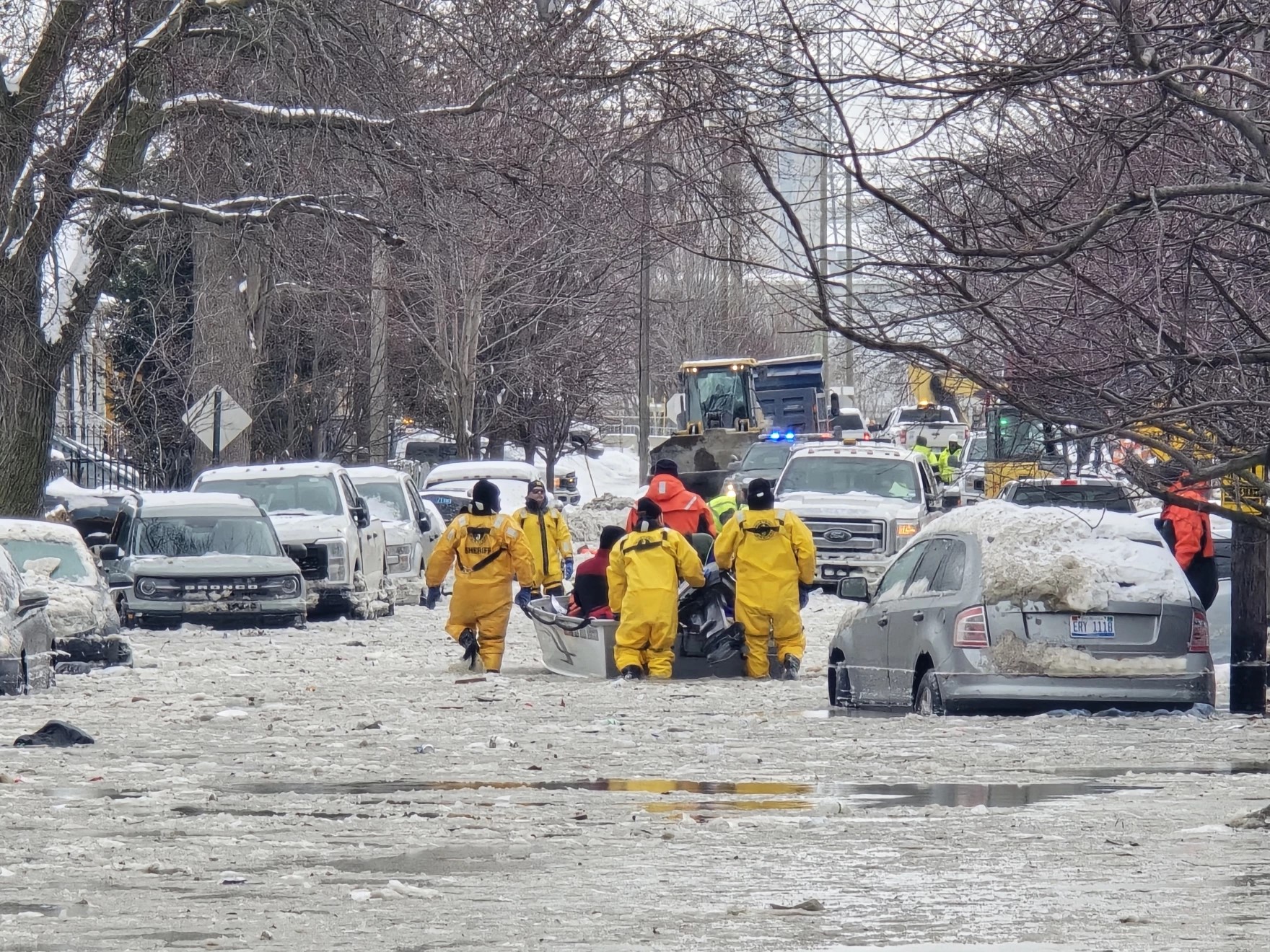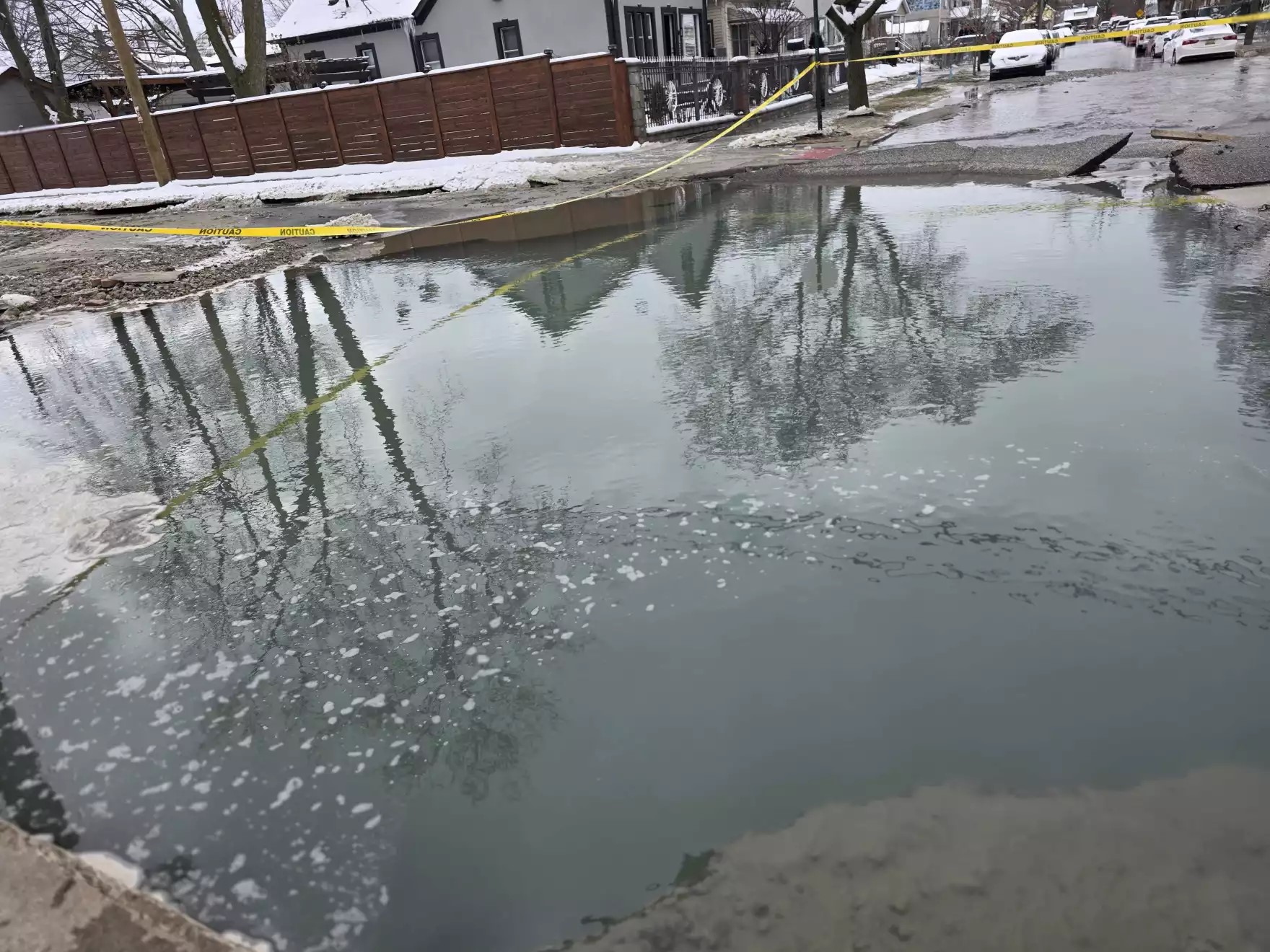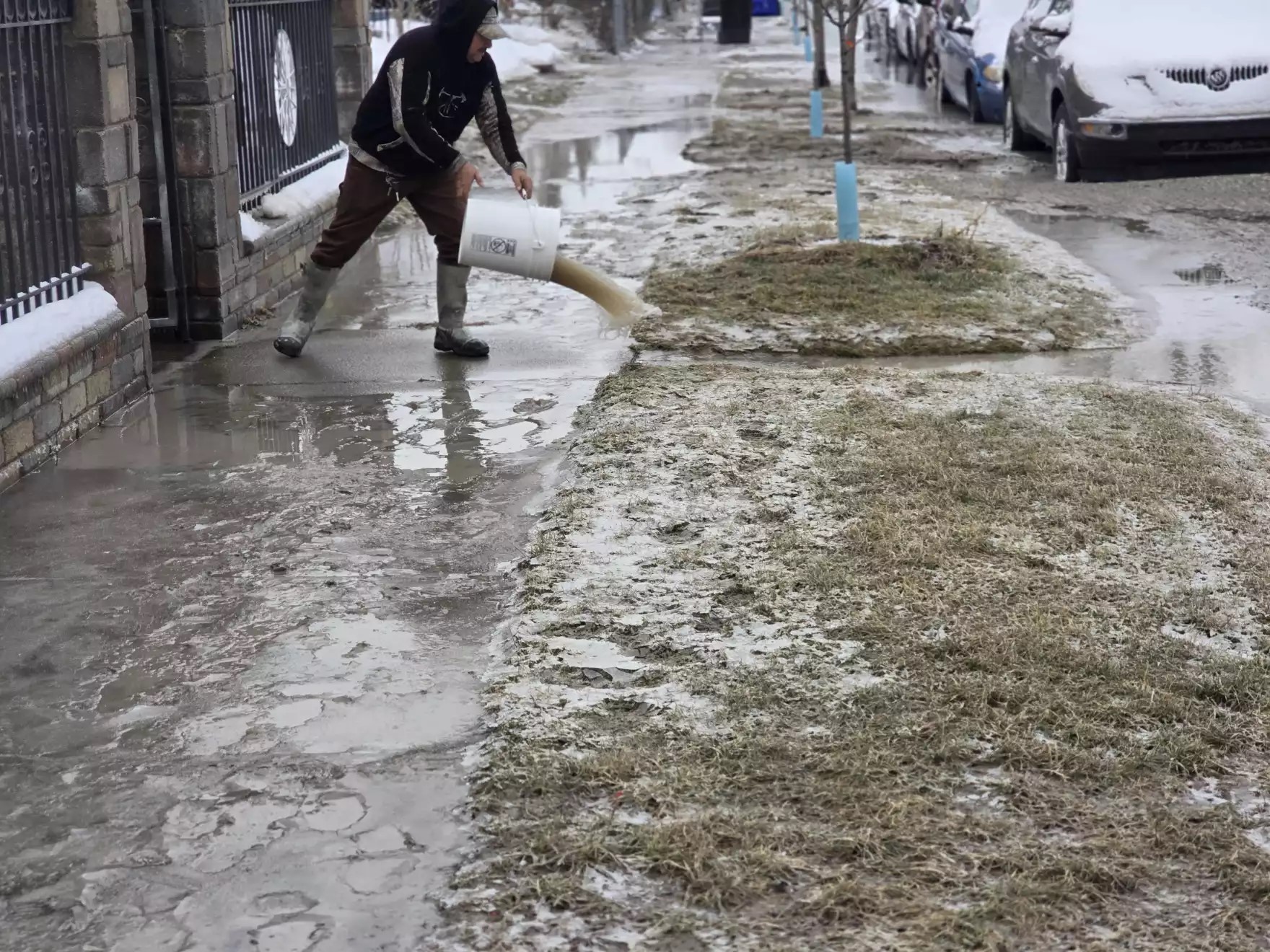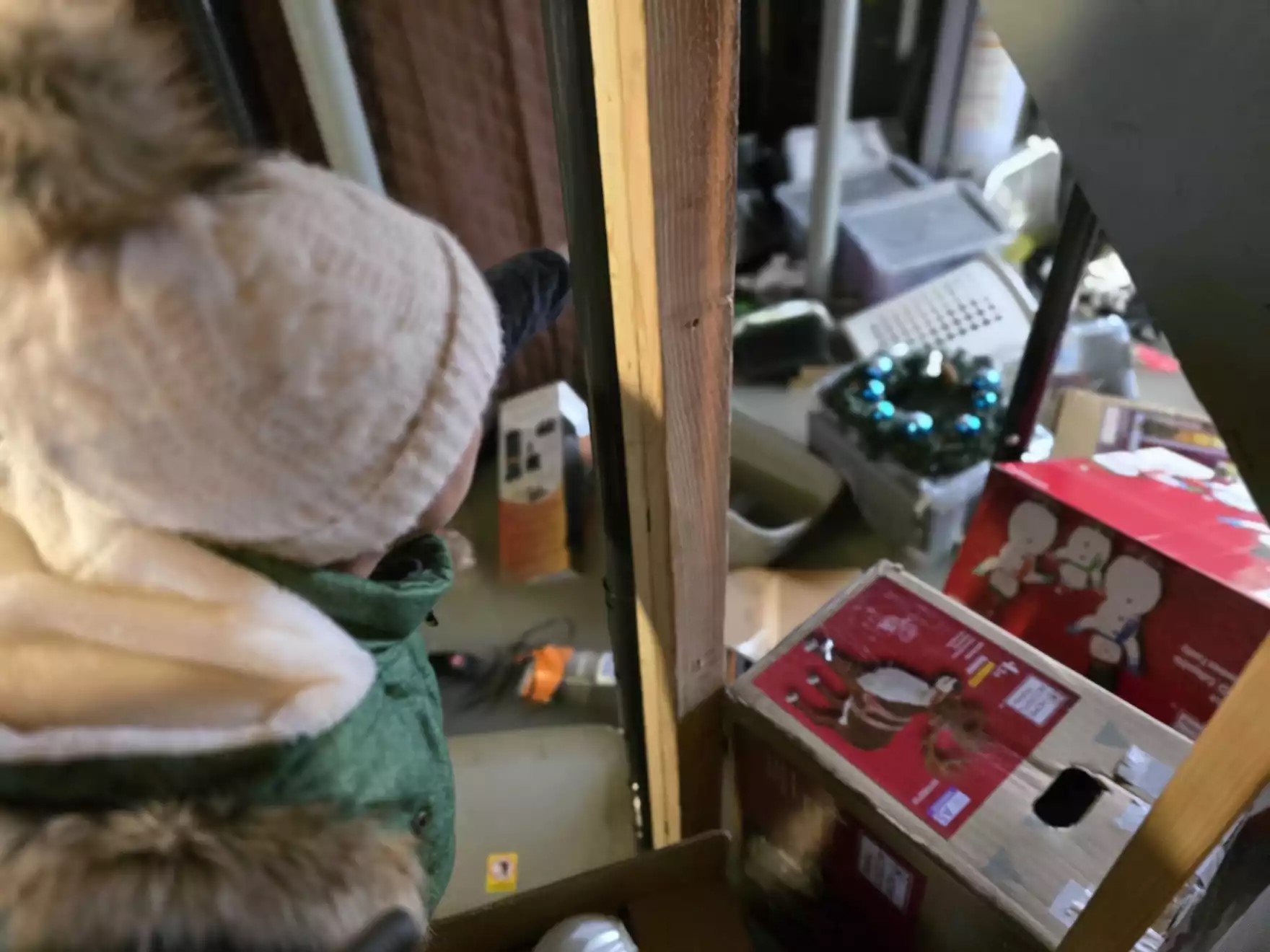
By Adam Yahya Rayes and Sarah Cwiek, Michigan Public
The Great Lakes News Collaborative includes Bridge Michigan, Circle of Blue, Great Lakes Now at Detroit PBS, Michigan Public and who work together to bring audiences news and information about the impact of climate change, pollution, and aging infrastructure on the Great Lakes and drinking water. This independent journalism is supported by the Charles Stewart Mott Foundation. Find all the work HERE.
The city of Detroit has set up a 24-hour hotline to help people affected by the water main break. City officials say residents can call (313) 774-5261 for help with:
- Getting shelter in a pet-friendly hotel due if flooding has impacted your home’s heating, electrical or water systems
- Getting paid Uber rides if your vehicle is stuck or damaged by the flooding
- Starting the process of filing a claim for “uninsured” damages to your home caused by flooding
Officials say the water has begun receding in and outside of residents’ homes. The flooding had been contained by noon Monday.
The nearly 100-year-old water main’s age is being cited as the one “of many” potential causes of this break. Detroit Mayor Mike Duggan called the break a “failure” by the city and regional water authority.
Residents of Detroit’s Southwest neighborhood are facing flooded streets, basements, and possibly lengthy stays in temporary shelters after a 54-inch water transmission main broke early Monday morning.
The main broke at around 2 a.m., according to multiple residents, creating a large hole with cracks splintering down a neighborhood street. One said it sounded like a snow plow hitting a speed bump.
Sidewalks were covered in thin layers of ice over several inches of water. In at least one area, emergency responders had to use boats to help residents get out of their homes.

The water main break left extensive damage to the street above it. (Photo Credit: Adam Yahya Rayes/Michigan Public)
Jose Romero lives right next to the part of the street where the main broke. His basement flooded, like many others.
“Fortunately it was [only] like a foot or so of water. But I see my neighbors are still taking buckets and buckets of water out,” Romero said. “We were really surprised that we were that fortunate.”

One of Jose Romero’s neighbors works to remove water from another neighbor’s basement using a bucket. (Photo Credit: Adam Yahya Rayes/Michigan Public)
Romero said he heard the break when it happened. It took some time for him and his relatives to figure out what was going on and begin alerting neighbors to the flooding.
“We tried calling the water department. I was on hold for 30 minutes. No one answered. After that, we started calling the non-emergency number,” he said. “And they just advised us to stay on the line with the water department. We even tried calling 911.”
It took city workers and employees of the Great Lakes Water Authority (GLWA), which operates the regional water system, until around 8 a.m. to identify and shut off water to the broken main.
By noon, officials say crews stopped the water from spreading by clearing storm drains and other measures. By then, police and fire crews had arrived, safely evacuating some 54 adults, 22 children, and 12 pets from the neighborhood. Firefighters carried some children out of homes on their shoulders.
But the damage to many neighborhood homes was potentially catastrophic, with icy water destroying furnaces, hot water heaters, appliances, and other important household items, particularly in basements.
Linda Hoskins lives on the street where the break originated. With water in her basement, she had to shut off her furnace and water heater in the morning. By noon, the flood waters had started to recede both in and out of her home — but several feet of water still remained in the basement
“I mean, it’s pouring in through my walls,” Hoskins said. “So that means my foundation is going to be worse than what it already was.”

Several residents, like Linda Hoskins, told Michigan Public they didn’t have flood insurance because it was too expensive. (Photo Credit: Adam Yahya Rayes/Michigan Public)
Detroit mayor Mike Duggan said the city and GLWA will split costs to repair residents’ homes — including replacements for furnaces and water heaters.
People whose cars are stuck or damaged can get Uber rides paid for by the city to get to and from work. The two entities will also pay for temporary hotel stays, though a potential cap on damage claims and other expenses has not yet been decided.
“This was a failure of the water main system,” Duggan said. “And the Detroit Water and Sewer Department and GLWA are going to repair the damage and pay for your loss as a result of this. And I’m really pleased with the fact that there’s no bureaucracy involved, that your uninsured damage will be split 50/50 between GLWA and DWSD.”
It will take some time to assess the damage, GLWA head Suzanne Coffey said Monday afternoon. The water needs to recede before workers can begin going door-to-door.
“We’ve got to get that water down,” Coffey said. “So we’re going to be working diligently to get that water down as quickly as we can.”
DWSD director Gary Brown told Duggan this water main break was the worst he’d ever seen. Brown said the claims process begins as soon as residents contact the city through the hotline number, or inform city workers on the ground in the neighborhood.
“As soon as they either make the phone call or tell the person that responds to the door that they want to make a claim, a claim will be made that will initiate the process,” Brown said. “We’ll get Buildings and Safety out to do an assessment of the home to make sure that it is safe and livable. And we will then begin to get the contractors in after the building inspectors to make the homes safe, making sure that they have heat, that they have water.”
GLWA’s Coffey said the authority has “800 miles” of water transmission lines across multiple counties to inspect and maintain.
“I will say I’m an engineer by trade and training and the brilliant engineers that design these systems design them to be closed intentionally. So it’s challenging for us to get in to do inspection,” she said. “Was it preventable? Not likely as assets age. But that doesn’t mean we don’t work every day to try to get ahead of these types of things.”
Catch more news at Great Lakes Now:
Great Lakes News Collaborative examines Water’s True Cost
Featured image: Officials say police and fire crews evacuated some 54 adults, 22 children, and 12 pets from Detroit’s Southwest neighborhood by Monday afternoon. Some had to be removed by boat. (Photo Credit: Adam Yahya Rayes/Michigan Public)




